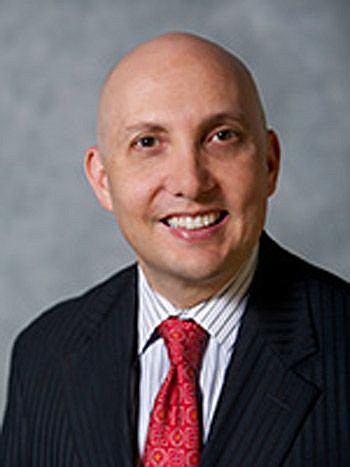
The annual meetings of the American Bar Association and the National Conference of Bar Presidents (NCBP), held in Boston this month, reflected certain challenging issues facing the legal profession and the rule of law.
The ABA has more than 400,000 members, making it one of the largest voluntary associations in the world.
The NCBP consists of rising, current and past leaders of state, local and specialty Bars around the United States and Canada, and it assists them in strategizing and implementing ways to better serve members.
Below are the meeting highlights.
Legal education
There is concern that a significant percentage of law school graduates are not “practice ready.”
This concern is compounded given the soft job market for lawyers — only 56 percent of 2012 graduates had full-time jobs as lawyers nine months after graduating — and the resulting increased number of lawyers going into a solo practice immediately after graduation.
Discussion points included:
• The profession needs more practical, experiential learning, making a better connection between what law schools
teach and what practicing lawyers do.
• A specific resolution was passed to encourage law schools to create United States Veterans’ law clinics.
• Efforts are being made to reduce the cost of law school education and, to some extent relatedly, to evaluate changes to the ways law schools are accredited and rated.
• Resolutions were passed to address the so-called “justice gap” that makes it difficult for low- and moderate- income people to afford legal counsel. Certain law schools are making a deliberate effort to educate students to fill this gap.
Law schools also are creating programs to reduce or eliminate tuition for students who pursue such “justice gap” filling programs.
Bar admissions
Many states have implemented efforts to increase pro bono service and professionalism through the Bar admissions process. For example, New York not only requires 50 hours of pro bono service before one can be admitted but also has substantially heightened the pre-admission requirement for professionalism education.
Arizona now permits students to sit for the Bar examination while attending law school.
Fourteen states are members of a Unified Bar Exam compact, providing for a unified Bar examination that can be used for admission consideration in any of the 14 signatory states.
Several states, including California, Washington, Vermont and New York, now have an apprenticeship track for Bar admission without the requirement of taking a Bar admission exam.
Studies are being undertaken regarding the circumstances under which international law school graduates may be admitted to practice in the United States.
Domestic violence, stalking and human rights
One in every three women in our country is or will be a victim of domestic violence. The ABA adopted a Model Workplace Policy on employer responses to domestic violence, sexual violence, dating violence and stalking, and passed a resolution encouraging employers to do the same.
The ABA also passed resolutions condemning forced marriage as a violation of fundamental rights, and taking steps to support victims; condemning discrimination against members of the LGBT community; and urging Congress to enact legislation on crimes against humanity.
Judicial independence
Judges are frequently attacked in the media and in campaigns for decisions issued and deemed to be contrary to certain interest groups.
The bench also is under fire for actions taken while practicing law, including representing clients deemed “undesirable.” The ABA continues to take steps to encourage Bar associations and members to assist/educate the public and the media in understanding the context in which judicial decisions are made and the important role served by this co-equal, nonpartisan, third branch of government, and of the justice system generally.
New president, landmark president-elect
William Hubbard of South Carolina was sworn in as ABA president. Hubbard highlighted the grim fact that two-thirds of Americans can name each “American Idol” judge but only one-third can name the three branches of government.
As such, he encouraged lawyers to become engaged in civics education. Technology, including smartphones, he said, are critical to bridging the gap to provide legal services and information to those who need it.
Hubbard has launched a Commission on the Future of Legal Services to look into this and other important evolutions in the delivery of legal services and access to justice. Relatedly, the ABA is creating a clearinghouse of pro-bono lawyers to represent children who are seeking refuge in the United States.
Finally, Paulette Brown of New Jersey was elected as the ABA’s first African-American female president-elect and it seems that her presidency will bring renewed focus to the issues of diversity and inclusion.
The Magna Carta
The ABA is celebrating the 800th anniversary of the Magna Carta, a document that, as you know, serves as the cornerstone of the concept of freedom and due process, secured by the rule of law, and the belief that no one is above the law.
U.S. Supreme Court Chief Justice John Roberts launched a yearlong celebration with his keynote address highlighting the important historic context of this document. He encouraged Bar associations and other community organizations to engage in activities celebrating the Magna Carta. The ABA theme for Law Day 2015 will be “Magna Carta: Enduring Symbol of Freedom.” More information on celebration activities may be found at americanbar.org.
In conclusion
The JBA owes a debt of gratitude to Ham Cooke for his years of service as the JBA’s first ABA Delegate. It is my privilege to succeed him. Please reach out to me if there are issues of interest or concern to you regarding the actions or activities of the ABA.
Freed is a partner at Brennan, Manna & Diamond. He is a past president of the JBA and also of the Federal Bar Association (Jacksonville chapter), and he serves on the Judicial Nominating Commission of the 1st District Court of Appeal. He is the JBA’s delegate to the ABA and is on the executive council of the NCBP.